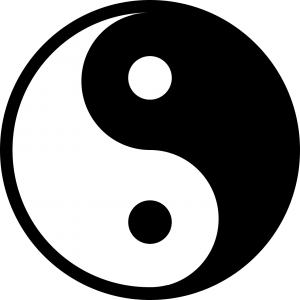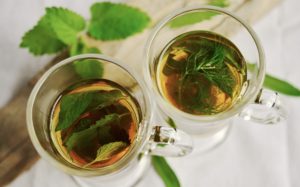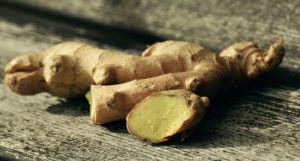In ancient China, doctors used herbal medicine for every kind of health problem. Their observations and recipes are still used to this day, and scientific studies continue to prove that herbs like ginger offer lots of health benefits. What is traditional Chinese medicine based on? How do you choose the best herbs?

You’re probably familiar with yin and yang as a symbol and general concept. They represent opposite forces in perfect balance. In human health, the body contains yin and yang, and together, they compose qi, which is the energy of life. Without qi, you would be dead.
Yin and yang appear in each organ, and they are not always in balance. The yin within, say, your spleen can become depleted, while yang can accumulate in excess. This leads to sickness and health problems specific to that organ, like infections and inflammation.
The six “evils”
What causes yin and yang to become unbalanced? There are six evils in the traditional Chinese philosophy. They can originate from the environment or within the body. Wind is considered the most significant evil because it causes most diseases. It increases yang in the body and tends to attack the lungs. Cold reduces yang and leads to blood stagnation. Damp also decreases yang and stagnation, while Heat Fire decreases yin. It tends to appear during the hot summer months. Summer Heat always appears in the summer and is the only yin that’s only external. The last evil, Dryness, is most present during autumn.
What can herbs do?
In the old days, herbal medicine was just “medicine.” All medicinal formulations came from plants. They contain countless elements that nourish and heal the body, like bitters (which help digestion and liver function), saponins, flavonoids (an anti-inflammatory) and more. Most medicines today contain parts of plants, but traditional herbal medicine uses the whole part of a plant, like the leaf or root. Traditional practitioners believe this is safer and more beneficial to a patient.
Blends of multiple herbs are better than single herbs, since they enhance each other’s qualities. A treatment can last anywhere from 1 week to a few months, depending on the condition they’re treating. The most common herbs and effective herbs include:
Astragalus
Strengthens the immune system.
Ginseng
Used for high blood pressure, low energy, nausea, and brain power.
Licorice root
A common ingredient because of its sweetness, it removes toxins and treats a variety of conditions like heartburn.
Dang Gui (Angelica Sinesis)
Used to treat infertility, stiff muscles, and high blood pressure.
Ma Huang (Ephedra Sinica)
One of the most ancient Chinese herbs, it treats lung issues.
How to choose the best brands
The quality of herbs is essential, because a lot of brands are really bad. In recent years, studies revealed that most herbal supplements are contaminated or mislabeled. Herbal medicine is a highly-unregulated system, so companies can get away with a lot. You want a brand that’s been tested and comes from a company that follows the FDA’s Good Manufacturing Practices.

Brewing herbs for tea
Using herbs
A common complaint is that herbs don’t work, but the reality is that they just don’t work like pills. They are much more gentle on the system, and if you have other unhealthy habits, you might not notice their effect. Herbal and traditional Chinese medicine is all about treating the whole body. To be sure you get the benefits from a herbal formulation, you should be sure you’re preparing it correctly. Some herbs are best brewed into tea, while others can be applied directly on the skin as a poultice. Dosage is also a consideration. You should talk to a qualified therapist before attempting a herbal treatment, and you should also talk to your doctor to make sure the herb won’t have a negative interaction with any medications you’re on.
———-
Not all “natural” treatments are effective, and some of them are even dangerous. Click here to read about healthcare has become “goop-ified.”





